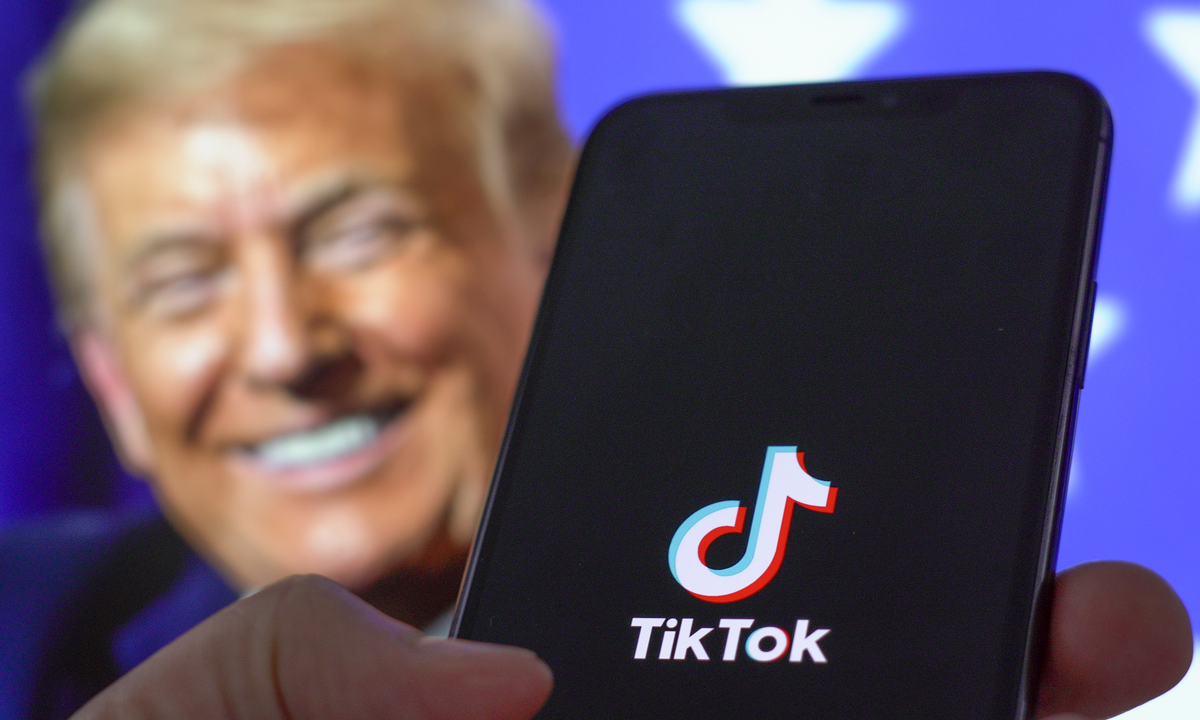School Choice Activist Jeff Yass May Have Prompted Trump’s About-Face on TikTok
The major TikTok investor and GOP donor met with Trump shortly before the former president’s stunning reversal on banning the popular app.

Get stories like these delivered straight to your inbox. Sign up for The 74 Newsletter
This article is part of The 74’s EDlection 2024 coverage, which takes a look at candidates’ education policies and how they might impact the American education system after the 2024 election.
Donald Trump surprised the political world last week by attacking a proposal that would force the sale of TikTok, reversing years of hostility to the popular social media app and its parent company, the Beijing-based ByteDance. Searching for an explanation, many point to the influence of one of America’s biggest school choice activists.
Jeff Yass, the billionaire founder of the trading and technology firm Susquehanna International Group, has spent energetically to promote private school vouchers over the past few years. With his wife Janine, he also founded the Yass Foundation for Education, which sponsors prizes for schools and education groups around the country, and funds political action committees dedicated to school choice in his home state of Pennsylvania.
On March 1, the mega-donor met with President Trump at a retreat organized by the Club for Growth, a major conservative advocacy organization that Yass has donated to in the past. Yass reportedly helped broker the gathering as a reconciliation of sorts after a split between Trump and the Club’s leadership during the 2022 midterm elections.
Just a week later, Trump announced his support for TikTok in a post on Truth Social, his own social media site. “If you get rid of TikTok, Facebook…will double their business,” Trump wrote. “I don’t want Facebook, who cheated in the last Election, doing better,” he added, offering no evidence for such a claim.

In addition to being one of the GOP’s biggest financial backers — he gave the third-largest sum to the party’s candidates and committees in the 2022 cycle, then made a $6 million contribution to Gov. Greg Abbott that the Texas Republican called the richest donation in his state’s history — Yass is a major TikTok stakeholder, owning roughly 7 percent of ByteDance. Those shares were recently valued at $21 billion, accounting for most of Yass’s net worth of $28 billion.
That interest is potentially imperiled by the passage of the Protecting Americans from Foreign Adversary Controlled Applications Act, a piece of bipartisan legislation that was introduced in the House of Representatives earlier this month. The bill, which sailed through the House Wednesday afternoon in a 352-65 vote, prohibits TikTok from being accessed in the U.S. if ByteDance does not sell it within 180 days. If not a straightforward TikTok ban, this would have the effect of ensuring that the platform would pass from Chinese control.
Strikingly, the bill is a near-copy of a measure that Trump himself attempted to enact during his administration. In August 2020, citing concerns that the app captured metadata and search histories from American users on behalf of the Chinese government, the then-president issued an executive order that would have required ByteDance to find a buyer for TikTok within 45 days. President Biden later withdrew that order, which had already been blocked by federal judges, but now says he would sign a TikTok ban if it were passed by Congress.
Bart Epstein, an education technology entrepreneur and former professor at the University of Virginia, said he believed Trump’s shift was motivated by a need to mend fences with the Republican financial establishment as he wages both a national campaign and several battles in court.
“He is facing more than half a billion dollars of legal judgments against him as well as dozens of felony counts,” Epstein wrote in an email. “He needs major donors to help him fund his re-election campaign.
Both technology experts and physicians have warned in recent years that TikTok, which provides users access to millions of short videos, is addictive and potentially harmful to the mental health of young people. In testimony before a House committee this week, Director of National Intelligence Avril Haines said she could not rule out the possibility that the Chinese Communist Party would attempt to use the app as a tool to influence the upcoming elections.
The New York Post reported last week that Yass has personally called Republican House members this month in an effort to derail the anti-TikTok law. He has supported Republicans who have come out against the ban, including Kentucky Sen. Rand Paul, to the tune of millions of dollars. The head of the Club for Growth has also argued against forcing a sale, alleging that the campaign is being driven by social media competitors like Meta, which owns Facebook.
A spokesman for the Yass Prize, declined to comment for this story, saying the legislative negotiations around TikTok are “not our area of focus.” An email to President Trump’s campaign was not returned, though in an interview with CNBC, he denied speaking with Yass about TikTok at the Club for Growth retreat.
Whatever the former president’s clout within his party, several prominent House Republicans said before the vote that his change in position would have no effect on their decisions. Still, Paul and other Senate conservatives may be able to stall or even quash the legislation.
At least one conservative education observer said that a ban was appropriate. Frederick Hess, director of education policy studies at the right-leaning American Enterprise Institute, celebrated the overwhelming House passage on Wednesday and said he was “hugely disappointed” by Trump’s about-face.
“We need to take the problems with social media much more seriously, and this applies many times over to TikTok, which doubles as a security threat and a propaganda platform for the Chinese government,” Hess wrote in an email.
Epstein voiced even greater worry about the app, warning that it had a “disparate impact on impressionable children and teens.”
“Allowing China to own or control TikTok or have access to its data is a huge mistake that should be remedied immediately,” Epstein said. “And then we should turn our attention to social media more generally.”
Get stories like these delivered straight to your inbox. Sign up for The 74 Newsletter

;)
